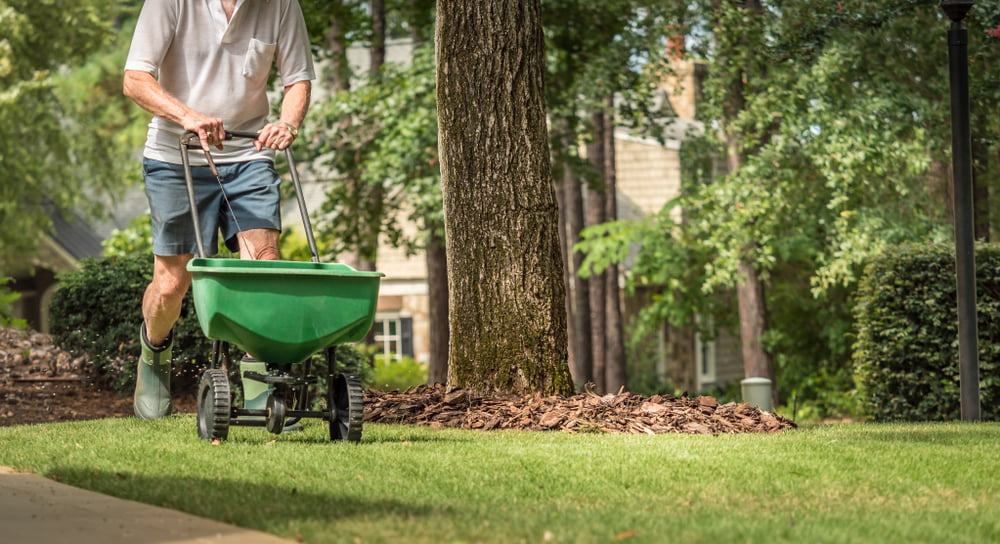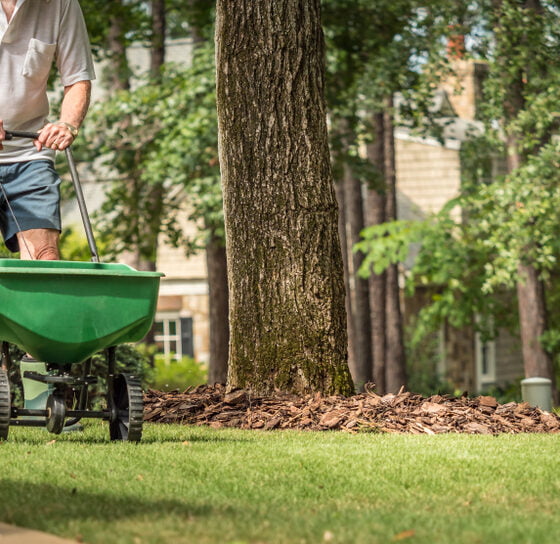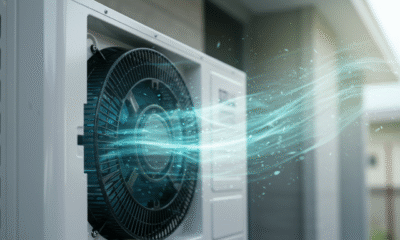

Features
Sustainable Fertilization Tips to Create an Eco-Friendly Lawn
According to a survey from CivicScience, 60% of Americans try to be eco-friendly when caring for their lawn. However, many don’t know how to do so.
A lush, green lawn is a pride for any homeowner, but achieving such a beautiful landscape requires proper care and attention. Lawn fertilization is crucial to lawn maintenance, providing essential nutrients to support healthy growth and vibrant color.
However, traditional fertilization practices can be detrimental to the environment. As we stated before, more people are using eco-friendly lawn care practices to minimize their impact on the planet. In this article, we explore the concept of sustainable lawn fertilization, an eco-friendly approach that not only enhances your lawn’s health but also helps preserve the planet.
Understanding Sustainable Lawn Fertilization
“Sustainable” lawn fertilization involves using environmentally-friendly methods and products that promote the long-term health of your lawn without causing harm to the surrounding ecosystem. This approach seeks to strike a balance between having a beautiful lawn and being conscious of the impact of chemical fertilizers on the environment. It is a perfect example of eco-friendly landscaping.
Natural and Organic Fertilizers
One of the cornerstones of sustainable lawn fertilization is the use of natural and organic fertilizers. These products are derived from plant and animal sources, making them safe and biodegradable. As this article from Science Direct points out, organic fertilizers release nutrients slowly, ensuring a steady supply to the grass and reducing the risk of nutrient leaching.
Incorporating natural and organic fertilizers into your lawn care routine enhances the soil’s fertility, improves water retention, and fosters beneficial microbial activity. Moreover, organic fertilizers encourage robust root development, making your lawn more resilient to pests, diseases, and environmental stressors.
Composting for a Greener Lawn
Composting is an excellent practice that aligns perfectly with sustainable practices. Instead of disposing of kitchen scraps and yard waste, you can create nutrient-rich compost in your backyard. Compost provides an array of essential nutrients and enhances the soil structure, fostering a healthier lawn ecosystem.
To create a compost pile, mix kitchen waste like fruit and vegetable peels, coffee grounds, and eggshells with grass clippings, leaves, and small branches. Turn the compost regularly to accelerate the decomposition process, and in a few months, you’ll have a black gold-like substance that works wonders for your lawn.
Avoid Over-Fertilization
Over-fertilization is a common mistake that harms both your lawn and the environment. Excessive use of chemical fertilizers can lead to nutrient imbalances in the soil, making your grass dependent on these synthetic nutrients and more susceptible to diseases.
It’s essential to apply fertilizers in moderation. Regularly test your soil to gauge its nutrient needs accurately. This way, you can provide just the right amount of nutrients that your lawn requires, leading to healthier growth without wasteful practices.
Embrace Natural Lawn Care Practices
Sustainable lawn fertilization goes hand in hand with natural lawn care practices. Simple habits, such as mowing at the correct height, leaving grass clippings on the lawn, and watering deeply but infrequently, contribute significantly to a thriving lawn. These practices reduce stress on the grass and improve overall lawn health.
How to Start Your Eco-friendly Lawn Fertilization Journey
Here are some tips for transitioning to a sustainable lawn fertilization routine:
- Start by assessing your lawn’s needs. Have a soil sample tested and learn what nutrients your grass requires.
- Choose natural or organic fertilizers that provide the right balance of nutrients.
- Follow instructions closely when applying fertilizer, and always keep safety in mind.
- Limit chemical applications and opt for natural alternatives, such as composting.
- Implement other sustainable lawn care practices to reduce your overall environmental footprint.
- Consult with a professional lawn care expert like Heroes Lawn Care to determine the best approach for your needs.
Conclusion
Lawn fertilization is a vital part of lawn care, but it’s essential to do it correctly. Sustainable lawn fertilization involves using natural and organic products, composting, and embracing other eco-friendly practices. Following these tips can achieve a healthy, vibrant lawn without harming the environment. You can have an eye-catching landscape while preserving our resources — a win-win scenario. As individuals, we can all make a difference and be mindful of our actions’ impact on the planet.



























